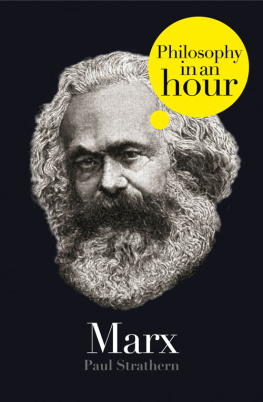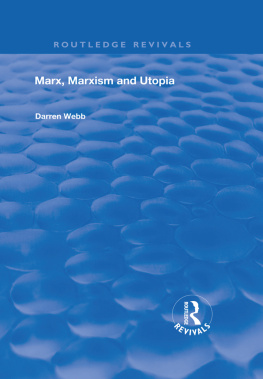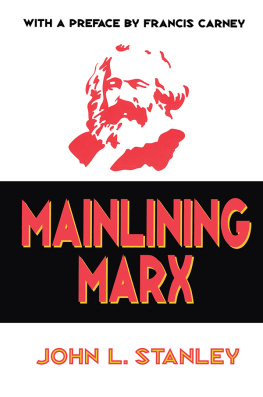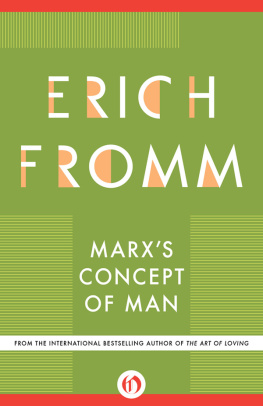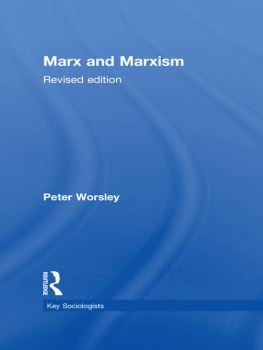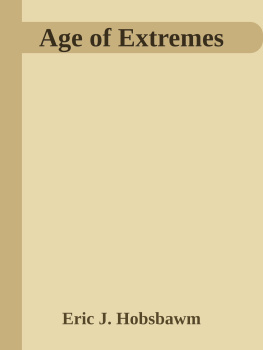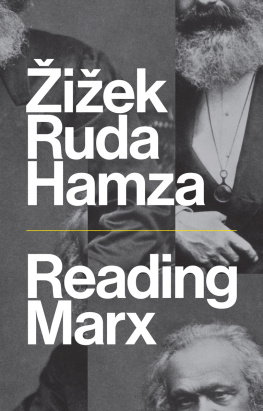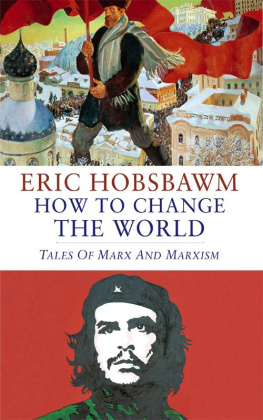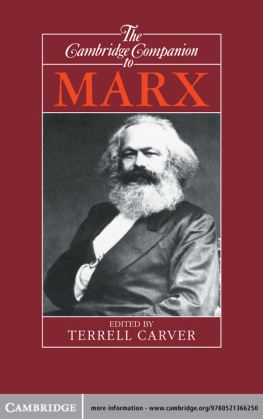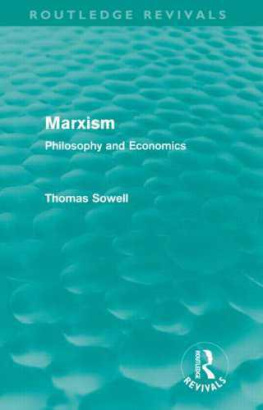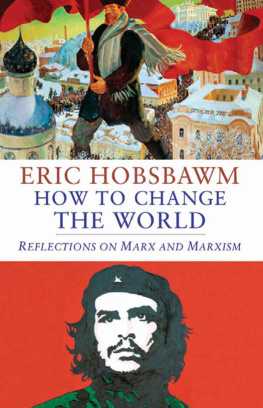How to Change the World
Also by Eric Hobsbawm
The Age of Revolution 17891848
The Age of Capital 18481875
The Age of Empire 18751914
The Age of Extremes 19141991
Labouring Men
Industry and Empire
Bandits
Revolutionaries
Worlds of Labour
Nations and Nationalism Since 1780
On History
Uncommon People
The New Century
Globalisation, Democracy and Terrorism
Interesting Times
How to Change the World
Reflections on Marx and Marxism
Eric Hobsbawm

To the memory of George Lichtheim
This collection first published 2011 in the United States by Yale University Press and in Great Britain by Little, Brown.
Copyright 2011 by Eric Hobsbawm.
All rights reserved.
This book may not be reproduced, in whole or in part, including illustrations, in any form (beyond that copying permitted by Sections 107 and 108 of the
U.S. Copyright Law and except by reviewers for the public press), without written permission from the publishers.
Yale University Press books may be purchased in quantity for educational, business, or promotional use. For information, please e-mail sales.press@yale.edu (U.S. office) or sales@yaleup.co.uk (U.K. office).
Typeset in Baskerville by M Rules.
Printed in the United States of America.
Library of Congress Control Number: 2011927314
ISBN 978-0-300-17616-2 (hardcover : alk. paper)
A catalogue record for this book is available from the British Library.
This paper meets the requirements of ANSI/NISO Z39.48-1992 (Permanence of Paper).
10 9 8 7 6 5 4 3 2 1
Contents
Foreword
This book, a collection of many of my writings in this field from 1956 to 2009, is essentially a study of the development and posthumous impact of the thought of Karl Marx (and the inseparable Frederick Engels). It is not a history of Marxism in the traditional sense, although its core comprises six chapters I wrote for a very ambitious multi-volume Storia del Marxismo published by the house of Einaudi in Italian (197882) of which I was co-planner and co-editor. These, revised, sometimes extensively rewritten and supplemented by a chapter on the period of Marxist recession since 1983, constitute over half the contents of the book. In addition it contains some further studies in what scholarly jargon calls the reception of Marx and Marxism; an essay on Marxism and labour movements since the 1890s, an initial version of which was originally given as a lecture in German to the Linz International Conference of Labour Historians; and three introductions to particular works: Engels Condition of the Working Class, the Communist Manifesto, and Marxs views on pre-capitalist social formations in the important set of 1850s manuscripts known in their published form as Grundrisse. The only post-Marx/Engels Marxist specifically discussed in this book is Antonio Gramsci.
About two thirds of these texts have not been published in has not been published before.
Who are the readers I had in mind when I wrote these studies, now collected together? In some cases (, perhaps 12) simply the men and women interested in finding out more about the subject. However, most of the chapters are aimed at readers with a more specific interest in Marx, Marxism, and the interaction between the historical context and the development and influence of ideas. What I have tried to provide for both is a sense that the discussion of Marx and Marxism cannot be confined either to the debate for or against, the political and ideological territory occupied by the various and changing brands of Marxists and their antagonists. For the past 130 years it has been a major theme in the intellectual music of the modern world, and through its capacity to mobilise social forces a crucial, at some periods a decisive presence in the history of the twentieth century. I hope that my book will help readers to reflect on the question of what its and humanitys future will be in the twenty-first century.
Eric Hobsbawm
London, January 2011
I
MARX AND ENGELS
1
Marx Today
I
In 2007 a Jewish Book Week took place less than two weeks before the anniversary of Karl Marxs death (14 March) and within a short walking distance of the place with which he is most closely associated in London, the Round Reading Room of the British Museum. Two very different socialists, Jacques Attali and I, were there to pay our posthumous respects to him. And yet, when you consider the occasion and the date, this was doubly unexpected. One cannot say Marx died a failure in 1883, because his writings had begun to make an impact in Germany and especially among intellectuals in Russia, and a movement led by his disciples was already on the way to capturing the German labour movement. But in 1883 there was little enough to show for his lifes work. He had written some brilliant pamphlets and the torso of an uncompleted major piece, Das Kapital, work on which hardly advanced in the last decade of his life. What works? he asked bitterly when a visitor questioned him about his works. His major political effort since the failure of the 1848 revolution, the so-called First International of 186473, had foundered. He had established no place of significance in the politics or the intellectual life of Britain, where he lived for over half his life as an exile.
And yet, what an extraordinary posthumous success! Within twenty-five years of his death the European working-class political parties founded in his name, or which acknowledged his inspiration, had between 15% and 47% of the vote in countries with democratic elections Britain was the only exception. After 1918 most of them became parties of government, not only of opposition, and remained so after the end of fascism, but most of them then became anxious to disclaim their original inspiration. All of them are still in existence. Meanwhile disciples of Marx established revolutionary groups in non-democratic and third-world countries. Seventy years after Marxs death, one third of the human race lived under regimes ruled by communist parties which claimed to represent his ideas and realise his aspirations. Well over 20% still do, though their ruling parties have, with minor exceptions, dramatically changed their policies. In short, if one thinker left a major indelible mark on the twentieth century, it was he. Walk into Highgate cemetery, where a nineteenth-century Marx and Spencer Karl Marx and Herbert Spencer are buried, curiously enough within sight of each others grave. When both were alive, Herbert was the acknowledged Aristotle of the age, Karl a guy who lived on the lower slopes of Hampstead on his friends money. Today nobody even knows Spencer is there, while elderly pilgrims from Japan and India visit Karl Marxs grave and exiled Iranian and Iraqi communists insist on being buried in his shade.
The era of communist regimes and mass communist parties came to an end with the fall of the USSR, for even where they survive, as in China and in India, in practice they have abandoned the old project of Leninist Marxism. And when it did, Karl Marx found himself once again in no-mans land. Communism had claimed to be his only true heir, and his ideas had been largely identified with it. For even the dissident Marxist or Marxist-Leninist tendencies that established a few footholds here and there after Khrushchev denounced Stalin in 1956 were almost certainly ex-communist breakaways. So, for most of the first twenty years after the centenary of his death, he became strictly yesterdays man and no longer worth bothering about. Some journalist has even suggested that this discussion tonight is trying to rescue him from the dustbins of history. Yet today Marx is, once again, very much a thinker for the twenty-first century.
Next page

